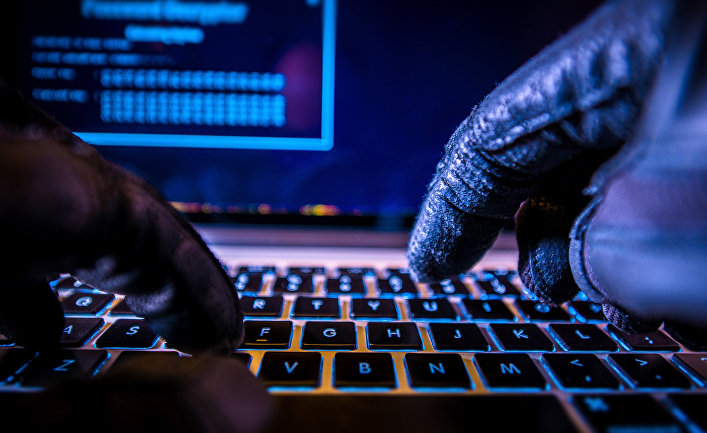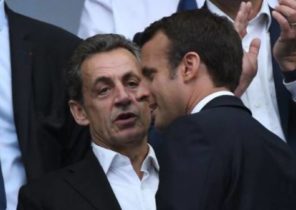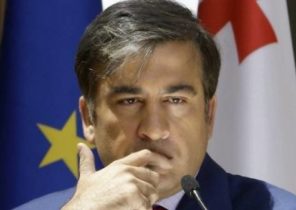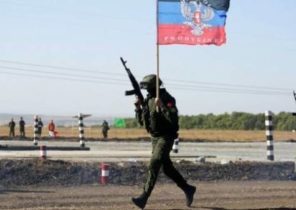
Researcher at the French Institute of international relations (IFRI) in Paris, a specialist on Russia and issues related to information technology and cybersecurity, Julien Nocetti told RFI on fantasies about the possibilities Kremlin hackers, about what the Russian approach in this area differs from the West, and also about how Europe is trying to adapt to the new threats emanating from Moscow.
RFI: About cyber war waged by Russia against the West, spoke during the election campaign in the United States. For you as a researcher how long have to the turning point?
Julien Nocetti: the Efforts that Russia is taking in this area based on the extensive Soviet experience. However, awareness of the opportunities in this region was received by the Russian authorities after the return of Vladimir Putin to the presidency in 2012. Therefore, turning point is 2012-2014. The beginning of Putin’s third term was marked by fears of the destabilizing potential of the Internet, as well as the significant efforts of the Russian Ministry of defense, which at the end of 2012 was headed by Sergei Shoigu. Shoigu has decided to massively invest in information technology, defense, and most importantly — offensive. The defense Ministry began a large-scale set of developers, programmers and hackers. The beginning of the armed conflict in Ukraine has become a kind of test these possibilities in reality.
— And this test has been successfully completed?
Yes. The beginning of Russian occupation of Crimea and then Donbas was marked by a fairly complex and well-coordinated attacks on power plants, telecommunications network, which was paralyzed by the Russian side. All these technical actions were accompanied by the systematic use of information technology. That’s what Russia is working especially carefully: trying to affect the opponent and to gradually win him to his side.
— Chief editor of the site Agentura.ru and the author of the book “Battle for the Internet” Andrei Soldatov in an interview with Libération says that “the worst is that we know nothing about the real cyber capabilities of Russia.” Do you agree with this point of view, and if so, how, being a French Explorer, you can work on a theme to which access is so limited?
— Indeed, we know little about the real cyber capabilities of Russia. These data are controlled simultaneously by the Russian Ministry of defence and the intelligence services headed by the FSB. Of course, the access to sources for Western researchers is extremely limited. I see that work in the field, interviews with officials who deal with these issues are becoming more complex. Especially after the election campaign in the United States, which began to speak about the Russian hackers. So in short and in the medium term, there is the problem of access to information, while these issues occupy more and more space in Russian foreign policy.
— You think that the political elite in Europe, particularly in France, does not understand the problems of computer technology and is aware of the changes that recently occurred?
— I think we need to consider separately the elite, the political class in General and those concerned with issues of cyber technologies. Between the first and second there are marked differences in terms of their understanding of how these issues are relevant. Until recently, our politicians rather misunderstood the importance of including strategic cyberspace. Not so long ago passed meeting ANSI National Agency for computer security, that is to say, computer gendarmes. They tried to make it clear to the political leadership how important it is to protect their data and to pay particular attention to the threats that exist in the network. And few politicians, the feelings, imagined the whole strategic importance of this issue, and the question may arise, ahead of elections this spring as the country’s leadership understands that the problem exists.
— Barack Obama recently warned the leadership of the countries-members of NATO, which in 2017 the elections will be held, including France, they say, “beware of the threat from Russia.” Is this just an attempt to make another strong statement in the confrontation between Russia and the United States, or is this a serious warning?
In my opinion, such a position is beyond the scope of Russian-American relations. Barack Obama clearly stressed that threatens large European countries, especially France and Germany. At the moment, are the two European countries which primarily work on the part of Russia.
There are, however, a small problem related to what position to choose: on the one hand, the “Russian hacker” imagine a person who sits somewhere in the Kremlin basement, continuously typing something on the keyboard and thus affects the elections in Western countries. On the other hand, there is a tendency, on the contrary, to underestimate a threat, although it clearly exists. So that part of the country’s leadership will also need to make some decisions, find some balance, even if it is not an easy task.
However, we see that policy gradually begin to recognize the problem, which could not be said before. So Obama’s warning — not just empty words. It sounds in the context of the constantly rising tension in cyberspace. International influence increasingly relies on the Internet, and Obama’s statement is also a way to attract the attention of the future administration of the tramp to the strategic value of these instruments, their potential, in order for the new administration doesn’t fall into the trap of propaganda, Russian or any other.
— We are talking, on the one hand, a certain naivety, a tendency not to take seriously the threats associated with a possible Russian attack, but on the other hand, this topic raises a lot of fantasies about all-powerful FSB that could hack anybody’s computer network in the West, no matter how they were perfect. In your opinion, what is in these recent revelations and theoretical reasoning truth?
— It is difficult to give an accurate assessment, but one thing is sure — you should not give excessive information success maneuvers of Moscow. The more success will ascribe to propaganda and subversive activities of Moscow, the more attention will be given to those maneuvers, the more, in my opinion, will be to overestimate the success of the Kremlin in this field. And this is the trap into which it is not necessary to get. Otherwise it will only encourage them to continue and further, because it allows for a relatively small amount of money to achieve good results. This is already a great achievement of the Kremlin is to achieve results that significantly exceed the resources expended.
— When you talk about “the strategy of the Kremlin”, as you imagine it?
The strategy of Russia and other countries are quite subtle combination of the crucial role of information (how it is perceived, its content, including on the Internet), on the one hand, and the technical component, software, and network tools. Russia’s success relies just on these two closely related things. And that the Russian approach just clearly differs from the American one, which relies on a very technical vision of the web, including from the security point of view, and possible lose sight of this “cognitive” component, popular in Russia, as well as, for example, in China.
— Speaking of content, do you mean the Russian media, which are particularly aggressive in the Western media?
Yes, that’s right. The Russian approach is also characterized by the fact that in Russian doctrine, the Internet is not allocated as a separate means of communication: in this respect there is no distinction between the Internet and traditional media. There is a single information space, which includes both traditional and new media. And this common space is subject to influence.
— How would you rate the presence of Russian media such as RT and Sputnik in France, including in social networks?
Is a presence there, and lately it increases. It’s part of the Kremlin’s strategy to strengthen media presence in the West. After all, his foreign policy continues to focus primarily on Western countries, relations with the West, particularly the United States. In addition, much is being done in order to strengthen the presence of Russian media in the Internet, in the major social networks, primarily Twitter, Facebook and Youtube. This three social network, which is given priority as the channels of influence. No, at least until recently there was no centralized effort on the part of the Kremlin in this direction. You could even say the contrary, that this work is completely decentralized and relies heavily on the work of the heads of the mainstream media, who on their part are promoting their own vision, their own “doctrine” in relation to they disseminate information.
— Somewhere else a year ago there was much talk about “trolls”. Today there is an impression that the army of “trolls” has given way to an army of hackers.
— Indeed, in the Western mind the threat of Russian “trolls” gave way to Russian hackers. On the Russian “trolls”, in particular, talked a lot during the Russian-Ukrainian conflict, which today is not over yet. There were many reports in the English media about the so-called factories “trolls”, including the plant located in the vicinity of St. Petersburg (Olgino), whose task is to spread propaganda on the websites of the media, Western and Russian, plus directly trolling, that is climbing in the debate on the Internet provocations, insults the author or the participants. The climax of this activity came in the conflict in Ukraine.
Another notable moment (activation of “trolls”) was the first months of the Russian military presence in Syria: the objective was to impose on Internet users to the Russian point of view, to explain the moral aspect of the Russian intervention to save the Assad regime. In recent months, the Russian soldier has faded into the background, replaced by the hackers in the discussions, although “trolls” and attempts informational influence from Russia have not gone away. Just more attention is now paid to the issues of hacking and network security.
— Western journalists who have sources in the intelligence agencies, speaking about relations between Russia and the West, each time note that this is completely different companies that have different logic. What do you think, will the West adapt to a similar approach on the part of Russia and will it be forced to do something, to create army of hackers, etc., as well as the security services have to get used to the realities of the “new cold war”. Will there be a “cold cyberwar”?
— In light of the efforts taken by Russia in cyberspace, in the West, now attempts to adapt to a new reality. This is especially noticeable in France, where he created some semblance of a new cyberarmies, most recently, it was stated by the Minister of defence. Both France and other European countries, such as Germany or the UK are “liberterian” that have no reason to be ashamed, they already have sufficient technical capabilities and qualified personnel. Nevertheless, in the near future, these countries intend to allocate additional funding in order to catch up they had experienced lag in comparison with the resources which were allocated by Russia or China. However, the money that is available to Russia or China, is, of course, is nothing compared to the capabilities of the United States, which remain the main “CyberDengui” whose spying features (e.g., the NSA), far ahead of the rest of the country.







